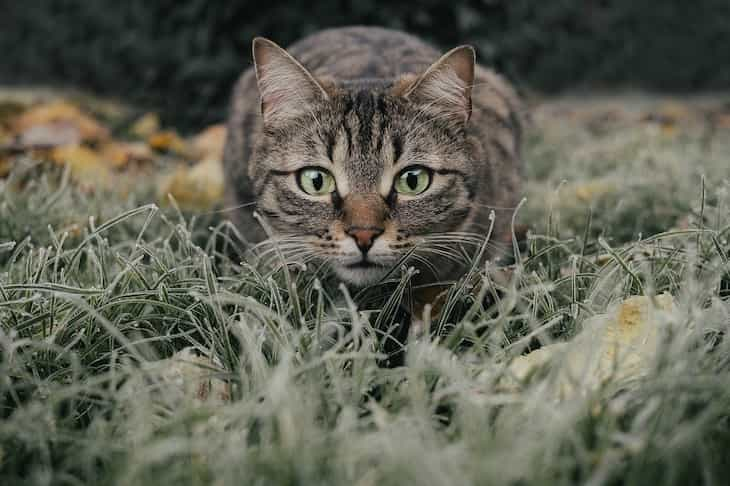If you want your pet to be healthy, then you should take care of its both physical and emotional health.
Cats might not be as emotionally developed as humans, but they can also have some mental health issues.
Here are a few examples of issues that domestic cats can have.
Anxiety
Cats can feel anxious, just like humans.
They may show signs of nervousness, restlessness, or excessive grooming.

Changes in their environment or routine can trigger anxiety.
Depression
Cats can experience periods of low mood or depression.
They may become withdrawn, lose interest in activities they usually enjoy, or have changes in appetite or sleep patterns.
Stress
Cats can get stressed due to factors like loud noises, new people or animals in the house, or changes in their daily routine.
They may display behaviors like hiding, excessive grooming, or urinating outside the litter box.
Behavioral issues
Some cats may develop behavioral problems, such as aggression or destructive behavior.
These issues can stem from various factors, including fear, lack of socialization, or previous traumatic experiences.
Compulsive disorders
Cats can develop repetitive behaviors that they feel compelled to perform, like excessive licking, tail chasing, or pacing.
These behaviors can be signs of compulsive disorders.
Cognitive decline
As cats age, they may experience cognitive decline, similar to dementia in humans.
They may show signs of confusion, disorientation, forgetfulness, or changes in litter box habits.
Phobias
Cats can develop specific phobias, such as fear of loud noises (like thunderstorms or fireworks) or certain objects or situations.
They may exhibit signs of fear, seeking hiding spots or trying to escape.
Previously, we talked about pet escapes.









